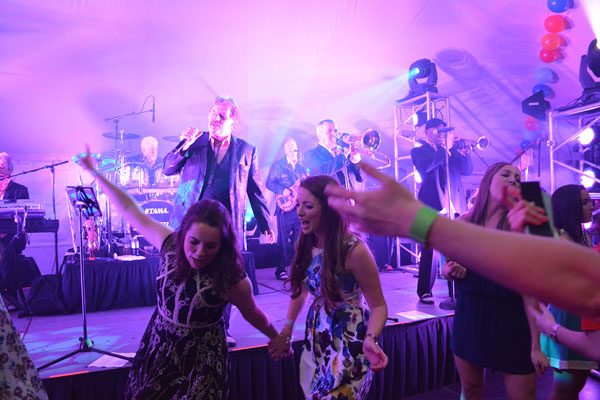About a year ago, a fraternity on the Wake Forest campus referred to an upcoming party with a sorority as a “v-card swiping buffet” to promote the event to their members. The university responded by putting the fraternity on probation.
“Many of the men on campus believe that their hyper-masculinity entitles them to get whatever they want, including women, and the fraternity scene only encourages this,” said sophomore and Kappa Beta Gamma member Nora Clancy.
The stench of alcohol and scene of darkness, masked by strobe lights illuminating sweat dripping down the faces of men and women, engulfs the basements where fraternity parties take place. Moonlight and hushed voices make up the scene around the house to keep authorities from interfering with the activities of the night.
With the long trial and punishment of Harvey Weinstein, a man who sexually assaulted vulnerable women, coming to an end, women on campus are hopeful that the status quo for how sexual misconduct cases are handled will change.
In a study done by Jacqueline Chevalier Minow and Christopher Einolf, they found that over a third of rapes on a college campus happen at fraternity parties in places where the victims are surrounded by people they know.
The women who spoke up against Weinstein’s action were often women whom he employed or casted in his movies. They were women who knew him. According to the Department of Justice, eight out of 10 victims of sexual violence knew the person who abused them.
The university is made up of about 5,000 undergraduate students with about half involved in Greek life. To add, all students are required to live on campus for at least three years, creating an environment where privacy is limited.
By day, students may sit next to one another in class, and later that night will be seen interacting at a fraternity party. The fraternity house parties held off campus make it almost impossible for the university to control, which leads to events that no one ever hoped to witness.
“Unfortunately, I know there are cases of sexual assault on Wake’s campus,” said senior GirlUp member Ishana Nigam. “I think the nature of going to a small school makes people feel uncomfortable reporting or talking about the issue because everyone knows everyone.”
With student run groups such as PREPARE and GirlUp, women on campus are working to educate students and provide a safe place to speak up about these issues.
Also acting as additional resources to students, campus offices such as the Safe office and the Title IX office are filled with adults whose job is to educate and help prevent sexual abuse.
“Wake uses the culture of respect regarding how we respect others, how we respect ourselves, and how we encourage others to speak up when the time is right,” said Interim Title IX Coordinator Tonya Deem. However, for some students, more work is needed.
“There are a ton of different offices that you can see, and I know they do their best,” Clancy said, “but I know a lot of things like that on campus are underrepresented, and there can always be more done.”
Deem echoed this idea.
“We would not be here if there was a perfect way to prevent these things from happening,” she said.
Every year, the university attempts to provide comfort and support to survivors of sexual abuse through a campus-wide sexual assault awareness week called Tie a Yellow Ribbon Week. This week is intended to educate and support the people who have been victimized. At the height of the week, a candlelight event is held in Wait Chapel called the Speak Out.
This event provides a place where stories of anonymous university students can be read. The readings are followed by faculty members speaking about the issue of rape on campus.
The event, held on Wednesday, Feb. 26, ended with quiet students trailing out of the chapel. In the dorms however, the music was turned up a notch while students started getting ready for a night spent with music, flashing lights and thick air.
















